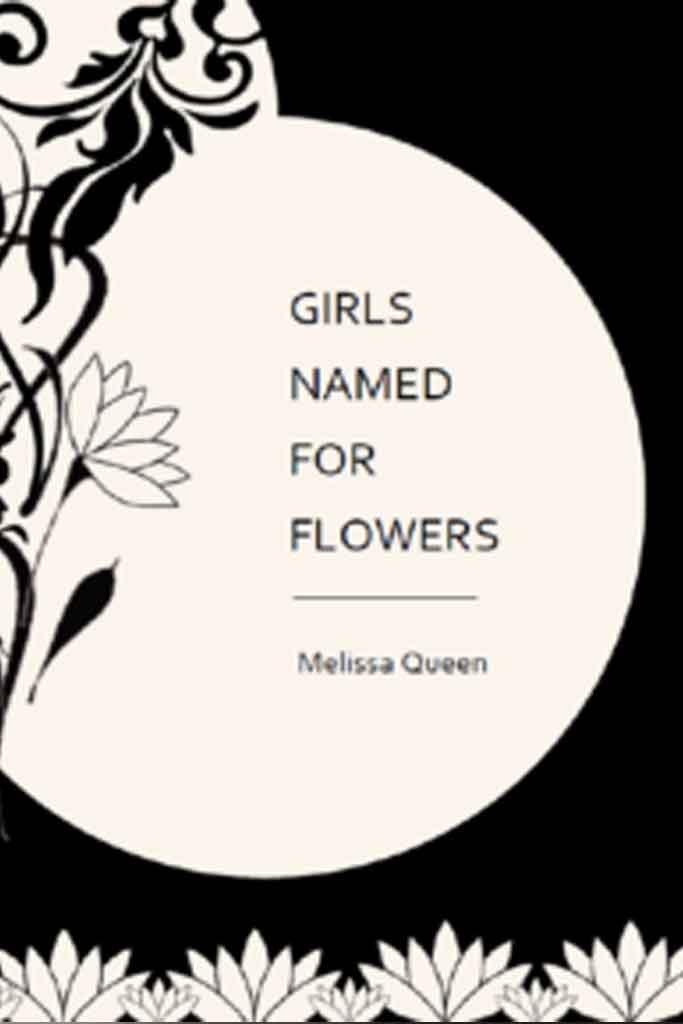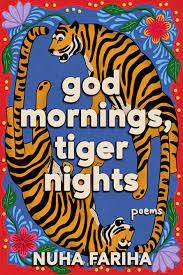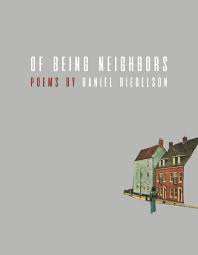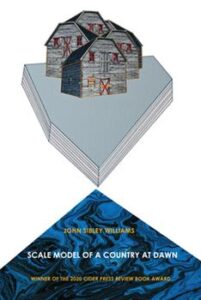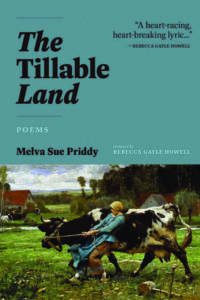Review by Jocelyn Heath // June 13, 2018
dancing girl press, 2017
Paperback, 32 pp. $7
We may never meet young women named Zephyranthes, Ipomoea, and Caladium in real life, but we do in Melissa Queen’s Girls Named for Flowers. In her debut chapbook, Queen grapples with sweeping questions of femininity and identity. Where the title seems to beckon us toward pretty things, Queen shifts our gaze onto the muddier complexities entangled in each girl’s roots—and how she grows despite them.
The title and opening poem situates readers directly in the conflict as it asks, “What could we daughters understand/of the corsages tied to our wrists?” Name binds gender and identity onto the girl child, a process so long-standing that, as Queen says:
No one can recall where it began:
if we were named,
we for their blossoms
or they for our constitutions (2).
However pretty flowers and girls may be, their connection and concurrent assumption of delicacy forces women into expectations as identifiable as species traits. Revisiting the trio from earlier, Zephyranthes are a kind of lily, Ipomoea is a genus that includes morning glory and moonflower, and Caladium’s fuchsia leaves earn it the name Heart of Jesus. The lily’s graced many females with its name; the morning glory’s beauty lasts but a short time before the bloom shrivels up; and need I mention the complex relationship of faith and femininity?
To undo the ingrained delicacy, the socially conventional stifling that finds women painting truths “with our tongues/on the cavern walls of our cheekbones,” will take a reclamation of the very language of self—“their own sounds/for these wild things” (2).
The best poems in the collection point to the depths and vulnerability that must be confronted as part of the female existence, even when their primary subject seems different. Perhaps the most intriguing idea Queen delves into through her family poems is what it means to be a daughter. “Learn to Sail with Your Dad” explores the father-daughter dynamic through eight poetic vignettes. The father pushes the daughter’s comfort and intellectual boundaries—in her best interests, the speaker thinks, though she must remind herself “he is not yelling at you.” In every lesson, from sailing to calculus to a mother’s illness, he demands “these same standards of full comprehension” (6). In “Swim Lesson,” the mother figure, too, seeks to prepare her daughter for life with what goes unsaid: “you have to be ready to jump” (18). These themes of presence and absence likewise recur in the collection.
“What I Know about Girlhood through the History of the Parsnip” revisits and twists the pretty/ugly binary explored by female poet predecessors like Plath in “Two Sisters of Persephone.” The parsnip, the “plain girl/of the produce aisle,” shares much with the carrot, “like two sisters/everyone mistook for twins/until she came into/her brilliant orange self” (8). Queen doesn’t stop at the comparison, though; she digs into the special hurt that comes with being the “lesser” girl who is told “you are so much sweeter” in consolation. Channeling the pain of every ostracized and overlooked teen girl, she writes, “the longer you feel left overlooked,/the more such sweet-on-the-inside/sentiments taste in your mouth/like the bark of a tree” (9).
Readers who know the South will appreciate the specificity of place and moments in Queen’s work, which assumes an identity nearly as present as the feminine in these pages. “Gone by Way” laments the loss of “the thirteenth daughter born of kudzu thatch,/of trailer home, of thunderstorm” to the road, escaping her world of drinking and kissing “in parking lots of corner stores” (10). Similarly, “My Father’s Seasoned Ice” sits us on a porch swing with Spanish moss entwining its chain, beside a father drinking “Diet Pepsi and/Jack Daniels in blue/plastic cup” (16). One can almost imagine humidity and buzzing cicadas underlying the verse.
Though themes of gender and self-invention emerge easily from the poems, the larger arc is hard to detect. Some thematic movement exists in the shift from trouble in the title poem to “Morphology of the Whale,” in which the speaker seeks to purge past existence “through soft levies of baleen, of hair, skin, or nail.” The poems focus on one female speaker throughout, though her identity samples more than journeys through her gendered existence.
In all, Girls Named for Flowers offers readers a varied, nuanced look at some of the ways women grow and survive in the world. Queen’s ability to navigate us through the tangled-up questions of gender and existence make the collection worth a read.
ABOUT THE REVIEWER
Jocelyn Heath is currently an Assistant Professor in English at Norfolk State University, having recently completed her creative PhD at Georgia State University. Her poem “Orbital” won the 2014 Alison Joseph Poetry Award from Crab Orchard Review. Her work has also appeared in The Atlantic, Fourth River, Poet Lore, Sinister Wisdom, Bellingham Review, The National Poetry Review, and other journals. She is an Assistant Editor for Smartish Pace, and has reviewed poetry for Lambda Literary and others.


